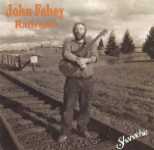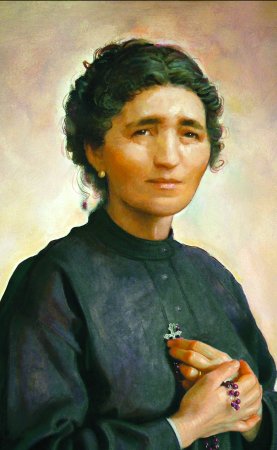Here's my latest bit of narrative non-fiction, as promised. Keep in mind this is a draft ... (For information on John Fahey, visit http://www.johnfahey.com/)

The first time I sat down to carefully listen to a John Fahey album, I made sure the lights were low and the door to my room was locked. I didn't want any distractions.
I lit a pipe of sweet, dark Virginia tobacco, let a few puffs fill the room with a blue haze, and pressed PLAY on the stereo. A good smoke did not distract from my listening experience; in fact it was a positive requirement for the commencement of my quasi-meditative Sunday-night relaxation ritual. Relaxation was the thing I did best that winter term of my fourth year of college, which was my second junior year or my first senior year, depending on how to look at it.
I kicked back in a natty green recliner that had graced that room in my fraternity house for at least two decades. It was sturdy, smelly, and quite comfortable. From the first track, "Frisco Leaving Birmingham," I knew I was going to enjoy that evening's musical selection. The disc was "Railroad," an album of ten train-themed acoustic guitar instrumentals produced on the Shanachie record label. Although John Fahey enjoys legendary status among fingerstyle guitar aficionados, he isn't exactly a household name for the general population, and "Railroad" is one of his hard-to-find, out-of-print albums. One of the guys in the fraternity house who shared my obsession with acoustic music recommended I check out Fahey, whose name I'd heard in the context of Leo Kottke and Stefan Grossman – two other players who have rivaled (or, arguably, exceeded) his achievements. But Fahey was the pioneer. In the late 1950s, he started composing and recording fingerstyle instrumental pieces on steel-stringed flat-tops, paving the way for a generation of solo guitar virtuosos. His original pieces and arrangements of traditional tunes have a spooky vibe, a distillation of the old-time country and blues, jazz, spirituals and Indian ragas that were his main influences.
Fahey had released at least 30 albums by the time I heard "Railroad" in 1995, but that CD was my first exposure to his music and it remains my favorite. His ability to wordlessly evoke the essence of the train song is uncanny. A thumb thumps away on the bass strings, echoing the rumble-rattle of a freight train, while fingers pluck out the melody of a steam whistle's wail or the dissonant screech of air brakes on a white-knuckle mountain grade. The titles of the tunes are as rich and intricate as their sounds: "Enigmas and Perplexities of the Norfolk and Western," "Delta Dog Through the Book of Revelation," "Steve Talbot on the Keddie Wye."
I noted these titles on the back of the CD case, squinting to make out the words by the light of a single votive candle and the orange glow of the stereo display. I saw the second track was "Oneonta." I thought, "Oneonta? I've been there. A few times. Why would he name a tune after a rundown college town like Oneonta?" I paused to let a drag of warm pipe smoke stream out my nostrils before I cracked open the jewel case to look over the liner notes. They're simple, a paragraph of expository material on each track, written by Fahey. Here's what he wrote about "Oneonta:"
There's a railroad yard there. It's part of the Delaware and Hudson R.R. Corp. I saw this line in 1948 as I was leaving Secret Caverns at Howe's Cave, New York, I love the D & H logo, and there's something eerie about that valley it runs through along the Susquehanna from Albany to Binghamton. Valley of desolation. Something frightening about that road. The sunsets around there are pure pantheism. Grandma Moses, Hudson River School and books by William Kennedy. I go through there every summer. I have to.
I've always felt more at ease in dim light. More relaxed. With fewer visual distractions, I am freer to think more clearly. I certainly felt a rare kind of clarity that evening ten years ago in the solitude of my candlelit room as I listened to John Fahey play "Oneonta" and read his odd, unsettling remarks on the place.
Many have written about the powerful emotional connection between memory and the sense of smell. Poets write about it, scientists have studied it. It occurs to me now, thinking back to my first listening of that striking album of railroad dirges, that memory can be stirred by stimuli of many varieties. Sometimes a single stimulus (be it olfactory, musical or geographical) can unleash a chain of memories. To this day, a few bars of John Fahey or a whiff of a certain blend of Virginia pipe tobaccocan bring me backto Oneonta.
- - -
John Fahey was a troubled guy. He was overweight, a heavy smoker, and he had serious issues with women and whiskey, true to the "Blind Joe Death" bluesman archetype his early works referenced. For all his genius as a composer and guitar player, he was a challenging personality, not an easy person to like. I've read that he once gave an interview while relieving himself, insisting the reporter join him in a toilet stall at a concert venue. And once in the mid-1970s, he put down his guitar in the middle of a performance, lit up a cigarette and told the audience all about his "dissolute, horrible, disgusting" life, and suggested, "Let's all go out back and commit suicide. Every one of us." Then he finished his smoke and went back to playing the guitar.
- - -
I made my second visit to Oneonta in the company of the Union College Rugby Football Club. We were scheduled to play Hartwick, which was one of just a few clubs in upstate NewYork whose record was worse than ours that season. It was spring 1996, and I had been listening to that John Fahey album over and over for three months. Not compulsively or exclusively, mind you, but enough for it to have made an impression. Riding in the van to the match that Saturday morning, my teammates discussed scrum and line-out strategies and traded stories about the previous night's party hi-jinks. I was half asleep and not in the mood for talk. I stared out the window of the van with the clanging riffs of "Railroad" in my head, expecting glimpses of D & H logos and Grandma Moses scenery. Something frightening about that road. Valley of desolation.
Our team had a poor showing that day. We were only able to field 15players, which meant we'd have no substitutes available in the event of injuries or disqualifications. Hartwick's situation was worse. With only 14 experienced players, the club had to press into service a football player who had never before set foot on a rugby pitch. Hartwick was seriously outmatched, and Union was having a rare good day. Plays that had never worked before started coming together, our normally timid outside center started making bone-crunching tackles, and by the start of the second half, we had racked up a respectable lead of several tries and goals. We were drunk with the exhilaration of the winning team in a landslide when I suffered an injury that is still talked about at alumni reunion events. The football player, who was clearly frustrated and only guessing at the rules of rugby, zeroed in on me as I ran the ball upfield in his direction. I braced for a standard wrapping tackle around the waist, but he hit me with an illegal NFL-style block, elbows up. That sort of thing is to be expected on the gridiron, where players enjoy the protection of helmets and copious padding. In proper rugby football, however, such moves result in serious bodily harm. His right elbow connected with the top of my skull. I fell to the ground, a little stunned, but in a few seconds I was on my feet and ready to proceed. I could tell something was wrong because the play had stopped, and everyone on the pitch and along the sidelines was looking at me. All eyes (and a few mouths) were open wide. I suddenly became aware of a hot, wet sensation, and my vision took on a ruddy tint.
The offending elbow had ripped a two-inch gash in my scalp, and it was quite a spectacle, according to accounts shared later over cold beverages. The Hartwick captain described "gouts" of blood visible from fifty yards away. The "crimson fountain" even rated a mention in the following week's edition of the Union newspaper.
Now, a gushing head wound will generally disqualify a player from continuing, but our stalwart coach knew a technique for staunching the flow long enough to let me back into the match. I did not want to sit on the sidelines without a substitute player available, so the coach doused my head with ice water, blotted up the blood, sweat and ice chips with a towel, and sealed the gash with a liberal handful of Vaseline. I'm not sure why the referee found it acceptable – I was grotesque, like a freshly reanimated zombie – but I was able to continue and scored a try in the final minutes of play.
On the way out of town after the match, we stopped at a convenience store for refreshments. I walked up to the counter with a Foster's oil can, a bag of pretzels and a bag of ice, and the clerk wasn't sure what to make of me. Does one ask to see the ID of a dirty, disheveled customer with a well-lubricated head wound? He rang up the purchase, and as he handed me my change, he asked:
"Are you all right?"
"Yeah, I'm fine."
"You sure?"
"Probably not."
"OK."
"Yeah, thanks."
I left Oneonta with mutilated head held high. As we drove back toward Schenectady through that valley of desolation, I basked in the rustic majesty of the Grandma Moses scenery, and I felt pretty good, considering.
---
To hear a sample of "Oneonta," click here: ONEONTA CLIP
 <--- At First Night 2005
<--- At First Night 2005









 Back in high school, Joe and I traveled in the same misfit circles, contributing to such noble enterprises as The Bugle newspaper (which I understand is sadly no longer being published), the International Club (Je me souviens les fromages de Quebec!) and the dramatic tour-de-farce "The Happiest Days of Our Lives." If I remember correctly, Joe was also one of the conspirators in the great FUBC-scandal-censorship-protest movement of June 1989. (Although he did not do time in detention for his involvement, unlike yours truly and
Back in high school, Joe and I traveled in the same misfit circles, contributing to such noble enterprises as The Bugle newspaper (which I understand is sadly no longer being published), the International Club (Je me souviens les fromages de Quebec!) and the dramatic tour-de-farce "The Happiest Days of Our Lives." If I remember correctly, Joe was also one of the conspirators in the great FUBC-scandal-censorship-protest movement of June 1989. (Although he did not do time in detention for his involvement, unlike yours truly and 




